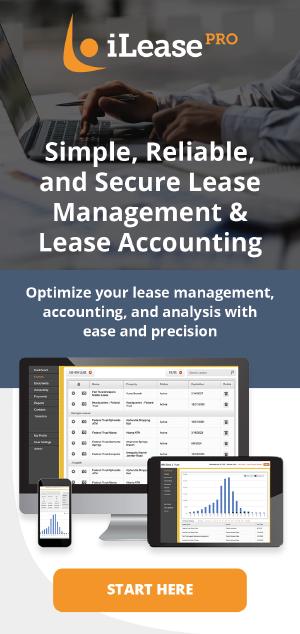Navigating Key Challenges in Lease Accounting Standard Implementation
A survey on the impact of the new lease accounting standard (as it pertains to lessees) was recently completed and its results validated some of the feedback that we have been providing over the last few years about how organizations are responding to the new change and major pain points that must be addressed as part of implementation of the new standard. Here are some of our major takeaways:
- Organizations are slow to start the implementation process. Of the organizations surveyed, only about 30% have started implementation. However, a significant majority intend to begin the implementation process sometime in 2020.
- A significant majority maintain their portfolio of leases on spreadsheets and only about 10% of the respondents have identified a software solution that will be utilized as part of implementation.
- Systems, data collection, personnel resources, controls and complexity of disclosure requirements are seen as the major potential pain points in the adoption of the new standard.
- The vast majority of the respondents either do not intend to or are unsure as to whether their leasing strategy will change as a result of the adoption of the new standard. The message here – even with a significant liability that will be added to the balance sheet, it seems that leasing will continue to be a critically important form of real estate and equipment financing.
Clearly, even for some major organizations with significant lease portfolios, the accounting for leases has been handled in a somewhat informal basis because the current operating lease accounting model is not particularly complex. But with the new standard virtually all leases must be recognized on the balance sheet of lessees, lease terms must be clearly delineated and understood, more judgment is involved in the lease accounting process and disclosure requirements are much more comprehensive. For any organization with a significant amount of leases, continued use of spreadsheets is no longer practical and it is now time to adopt a technology solution that not only accommodates the new accounting but also allows for comprehensive management and analysis of the lease portfolio. If you are one of the companies interested in selecting a solution to help with your ASC 842 compliance, check out iLeasePro lease accounting software.



